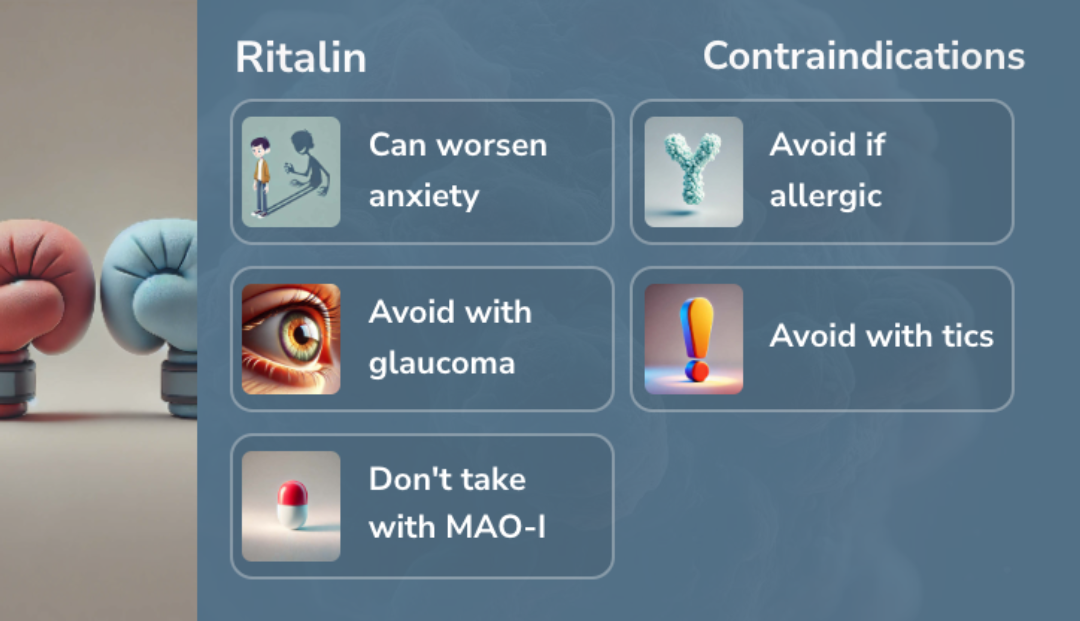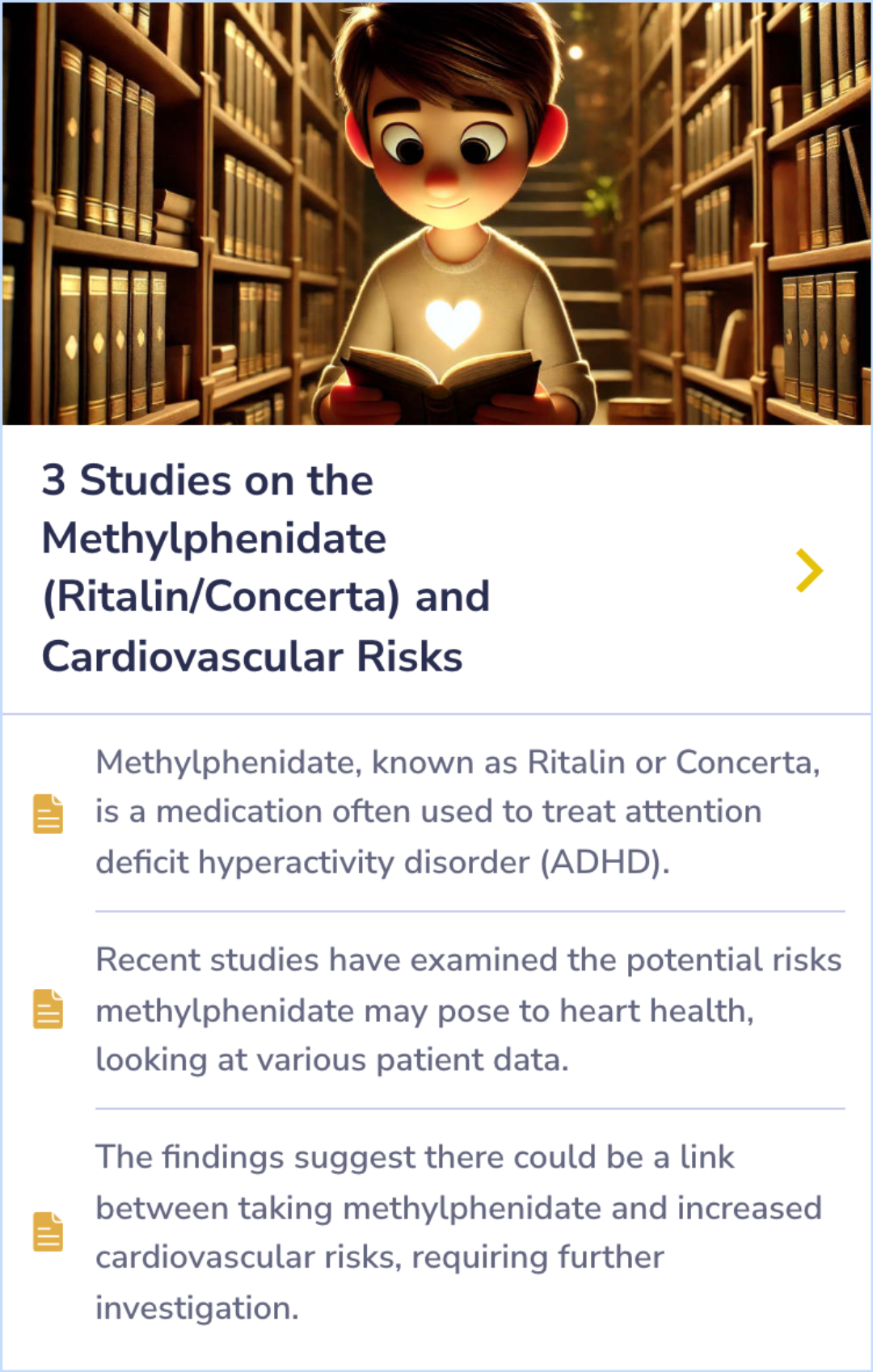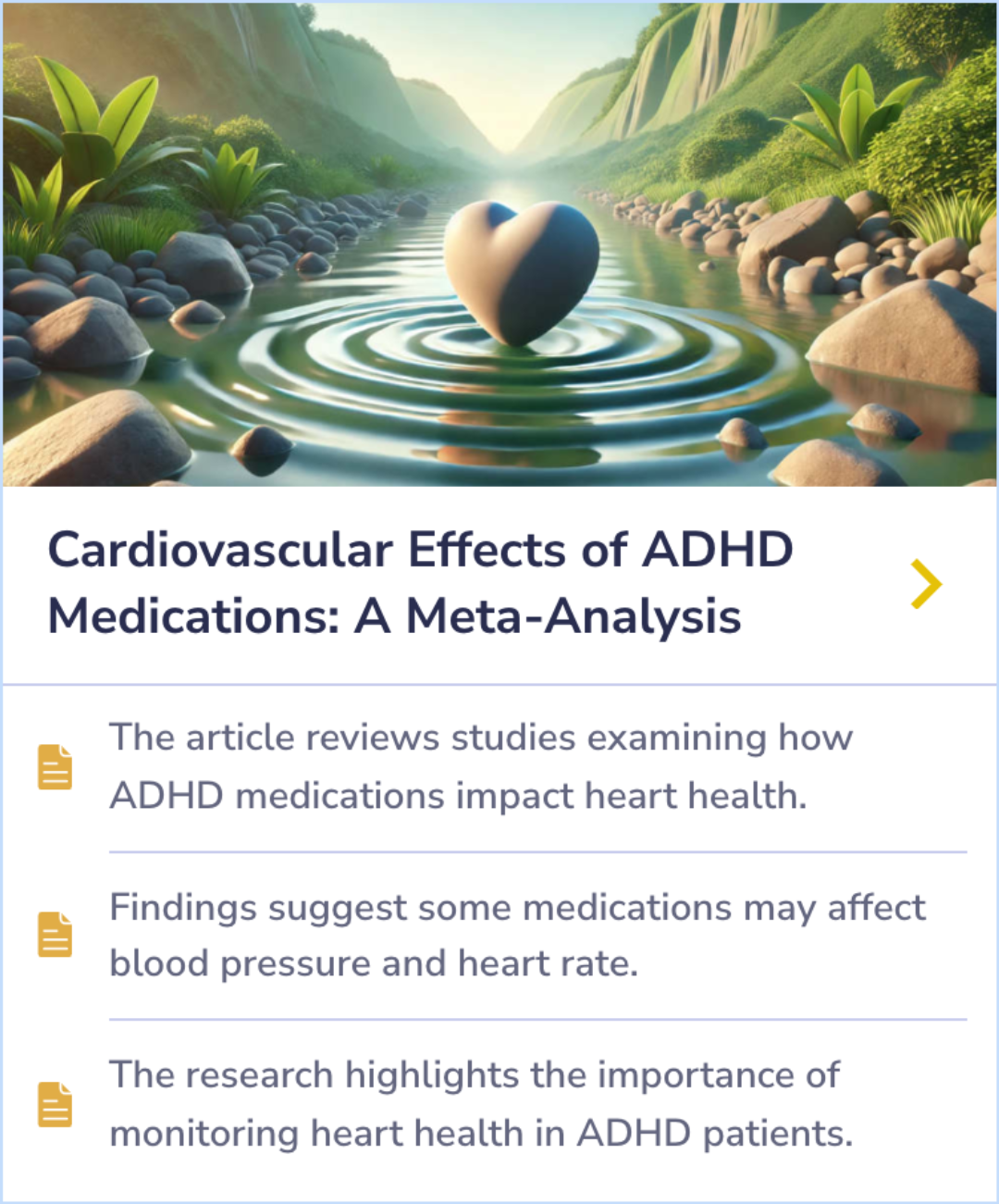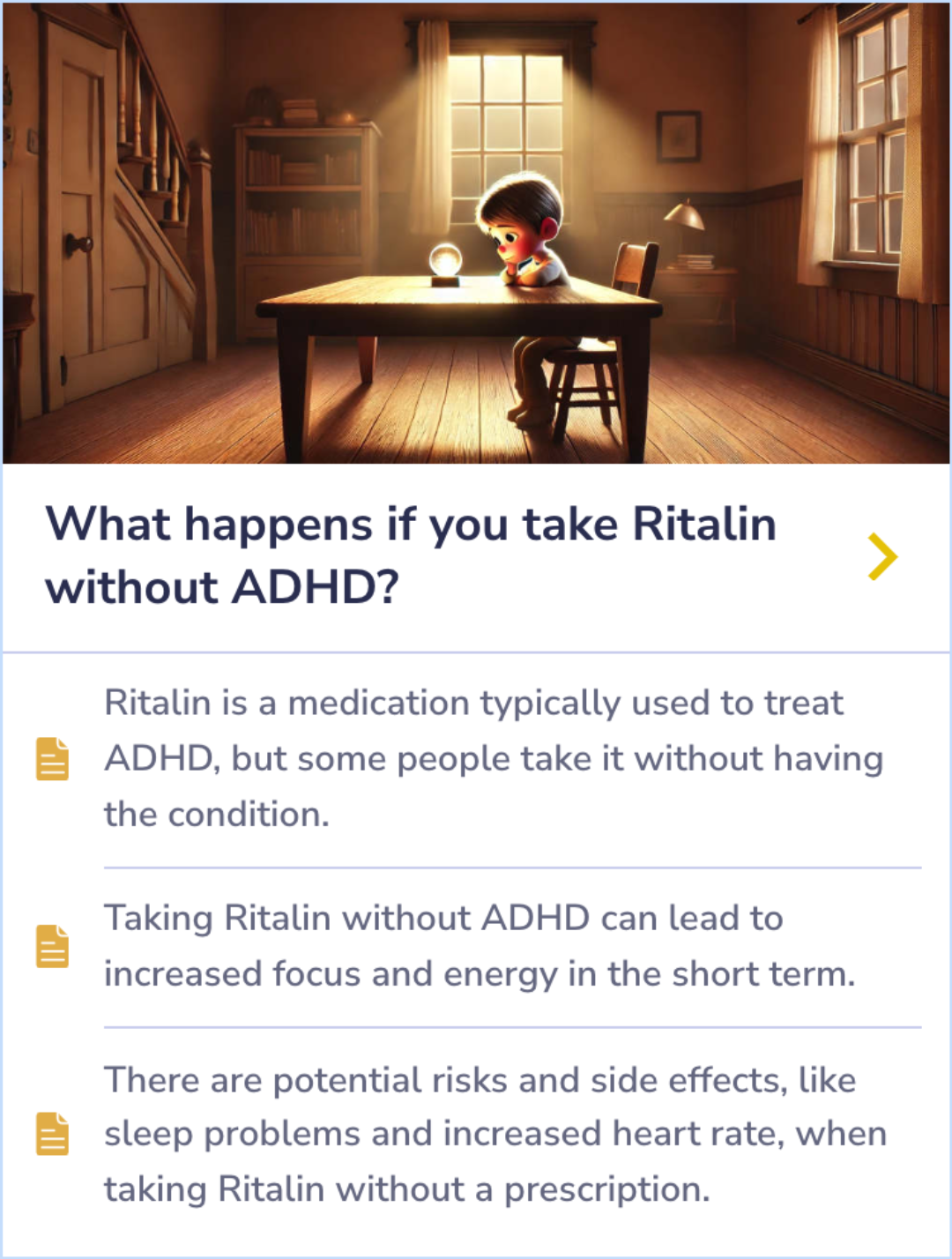Ritalin
Evidence Based Answers
Ritalin Contraindications
Ritalin is unsuitable for those with severe anxiety, tics, or heart problems due to increased side effects. Avoid drug interactions, especially with MAOIs, and use caution across different age groups.

Ritalin should be avoided if you have anxiety, tics, heart issues, or take MAOIs.
Health Conditions That Contraindicate Ritalin
Ritalin (methylphenidate) is not suitable for individuals with specific health conditions. Those with severe anxiety, tension, or agitation should avoid Ritalin as it may worsen these symptoms.
It should also be avoided by individuals with a history of tics, Tourette's syndrome, or significant cardiovascular disease. These conditions increase the risk of severe side effects, including elevated blood pressure and heart problems.
It should also be avoided by individuals with a history of tics, Tourette's syndrome, or significant cardiovascular disease. These conditions increase the risk of severe side effects, including elevated blood pressure and heart problems.
“
Source Quotes:
Ritalin should not be administered to patients with marked anxiety, tension, or agitation, as these conditions may be exacerbated by stimulant medications.
Patients with significant cardiovascular disease should avoid Ritalin due to potential elevations in heart rate and blood pressure.
Ritalin and Drug Interactions
Certain medications interact negatively with Ritalin, leading to health risks. Monoamine oxidase inhibitors (MAOIs) must not be taken with Ritalin as this can cause dangerous spikes in blood pressure. The risk remains high for 14 days after stopping an MAOI.
Ritalin’s effects can also be influenced by other medications for hypertension, depression, and seizures. Careful monitoring is required when Ritalin is prescribed alongside these drugs.
Ritalin’s effects can also be influenced by other medications for hypertension, depression, and seizures. Careful monitoring is required when Ritalin is prescribed alongside these drugs.
“
Source Quotes:
Concurrent use of Ritalin and monoamine oxidase inhibitors (MAOIs) is contraindicated due to the risk of hypertensive crisis.
Caution is advised when prescribing Ritalin alongside antihypertensives, antidepressants, and anticonvulsants due to potential interactions.
Age and Ritalin Contraindications
Ritalin is generally not recommended for children under six due to limited safety data and higher risk of side effects.
In older adults, caution is necessary, especially if cardiovascular conditions are present. Age-specific factors must be considered for safe use of Ritalin.
In older adults, caution is necessary, especially if cardiovascular conditions are present. Age-specific factors must be considered for safe use of Ritalin.
“
Source Quotes:
Ritalin is not recommended for children under six due to insufficient safety data.
In older patients, caution with Ritalin is advised, especially with cardiovascular conditions, due to increased risk of adverse effects.
Key Takeaways
Conclusions
Ritalin is not suitable for individuals with certain health conditions, such as severe anxiety, agitation, or a history of tics and cardiovascular issues. Research highlights potential negative interactions with medications like MAOIs, and careful monitoring is essential. Age-related concerns, particularly in young children and older adults, should be considered before prescribing Ritalin.
Overall, Ritalin use requires careful screening for underlying conditions and potential drug interactions to minimize health risks and ensure safe use in different age groups.
Overall, Ritalin use requires careful screening for underlying conditions and potential drug interactions to minimize health risks and ensure safe use in different age groups.

Evidence Summary
Exploring Heart Health Risks with Methylphenidate
Recent studies are exploring the potential cardiovascular risks associated with methylphenidate, a medication commonly used to treat ADHD. Data from these studies indicate there might be a connection between methylphenidate use and increased risks to heart health.
Methylphenidate, known by brand names like Ritalin and Concerta, is undergoing closer scrutiny as researchers analyze patient data to uncover whether there’s a significant impact on heart rate, blood pressure, and other cardiovascular markers.
Ongoing investigations aim to clarify how methylphenidate affects the heart, especially considering its influence on dopamine and related neurotransmitters.
Methylphenidate, known by brand names like Ritalin and Concerta, is undergoing closer scrutiny as researchers analyze patient data to uncover whether there’s a significant impact on heart rate, blood pressure, and other cardiovascular markers.
Ongoing investigations aim to clarify how methylphenidate affects the heart, especially considering its influence on dopamine and related neurotransmitters.
Evidence Summary
How ADHD Medications Affect Heart Health
ADHD medications can impact heart health, with research showing changes in blood pressure and heart rate in some cases. These medications may elevate or lower these measures, depending on factors like dosage and individual response.
Research emphasizes the need for regular cardiovascular monitoring in ADHD patients, as these adjustments can help manage any potential risks tied to medication use.
Research emphasizes the need for regular cardiovascular monitoring in ADHD patients, as these adjustments can help manage any potential risks tied to medication use.
Evidence Summary
Short-Term Gains vs. Long-Term Risks of Ritalin Use Without ADHD
Taking Ritalin without ADHD can boost focus and energy temporarily, but it comes with risks. While users might notice heightened alertness, they may also face side effects like sleep issues and increased heart rate.
This stimulant, meant for managing ADHD symptoms, affects brain chemicals that impact mood and attention. However, using it recreationally or without a prescription can lead to unintended health concerns, particularly with the heart and sleep patterns.
This stimulant, meant for managing ADHD symptoms, affects brain chemicals that impact mood and attention. However, using it recreationally or without a prescription can lead to unintended health concerns, particularly with the heart and sleep patterns.


